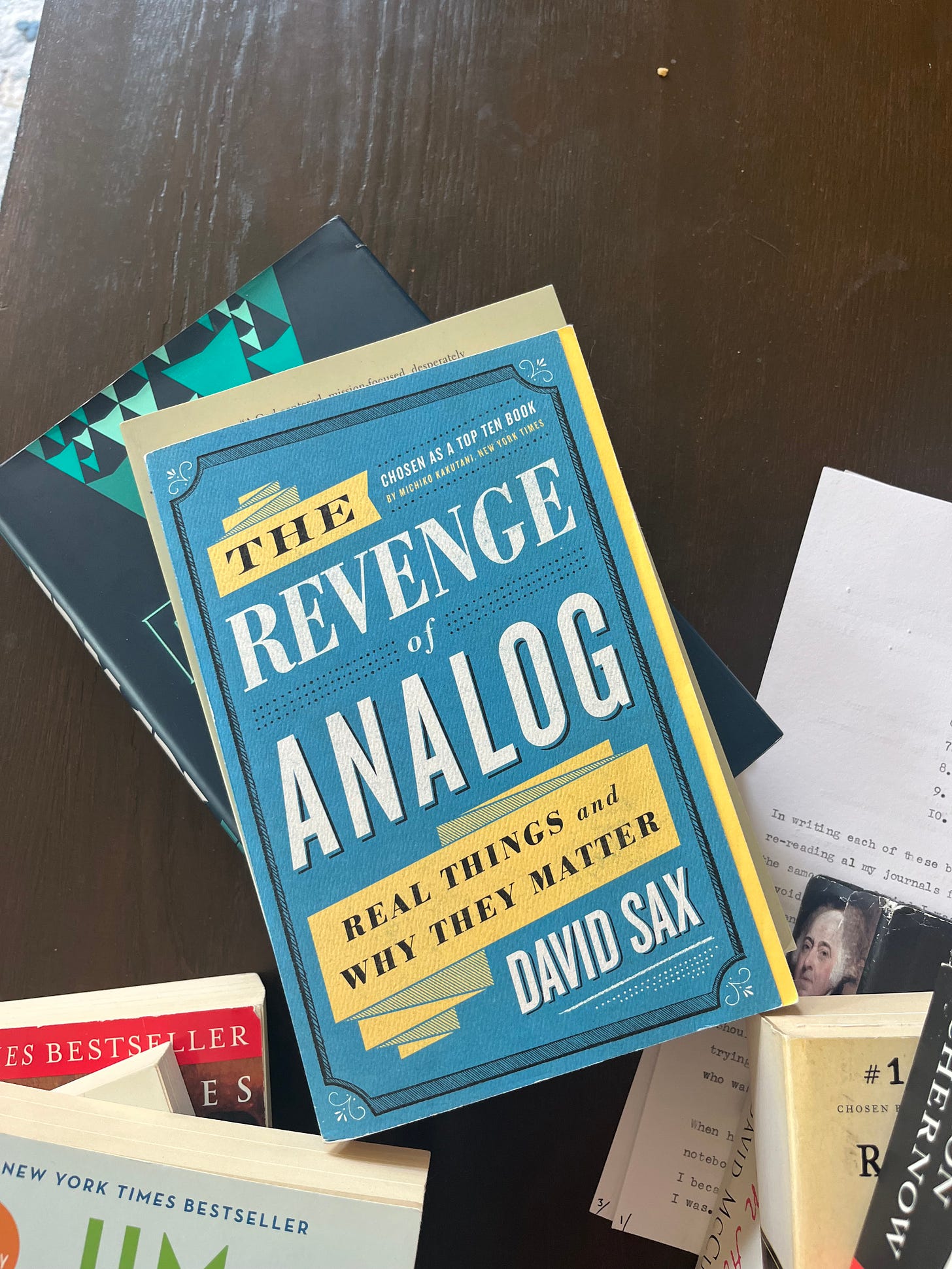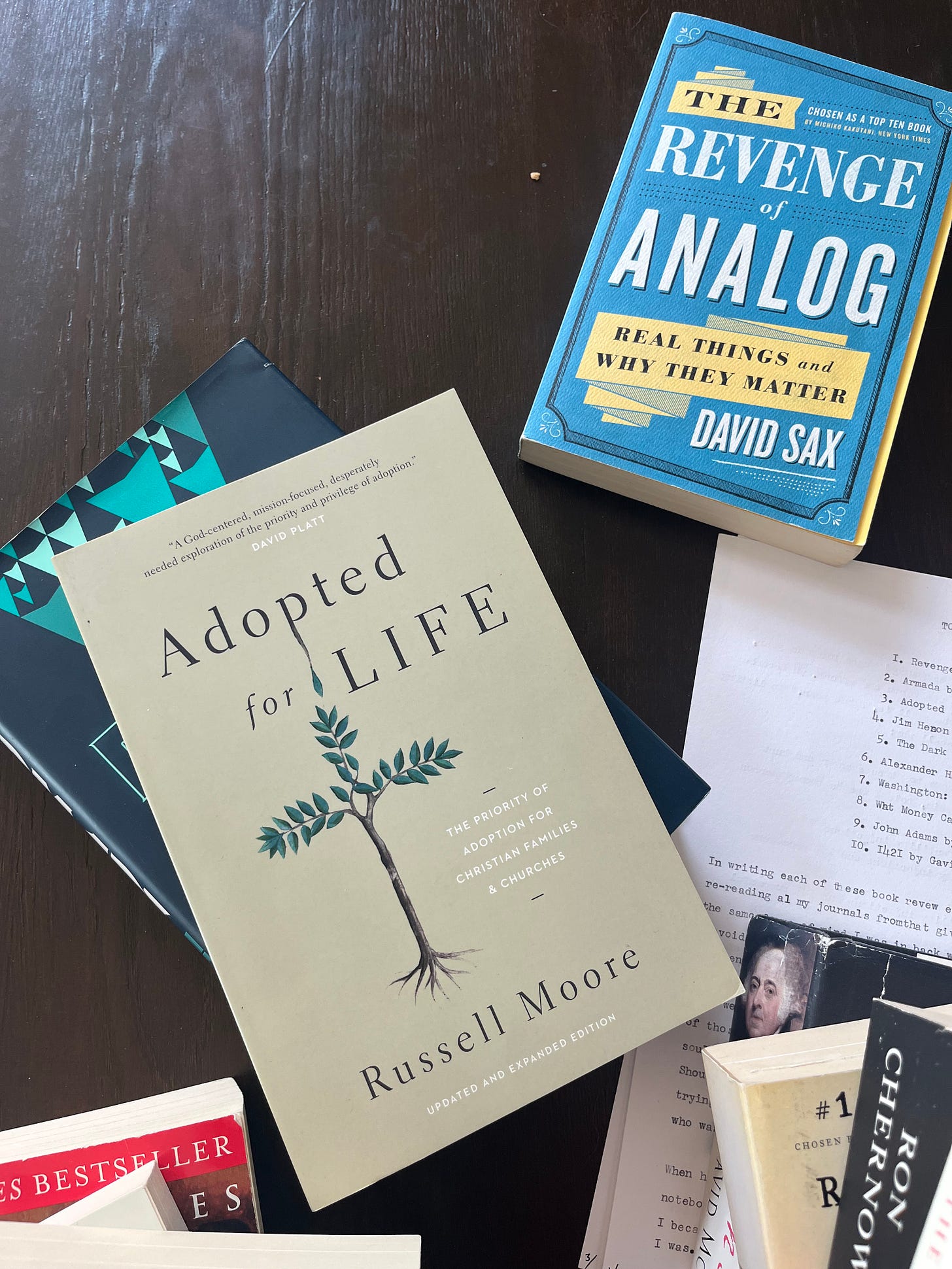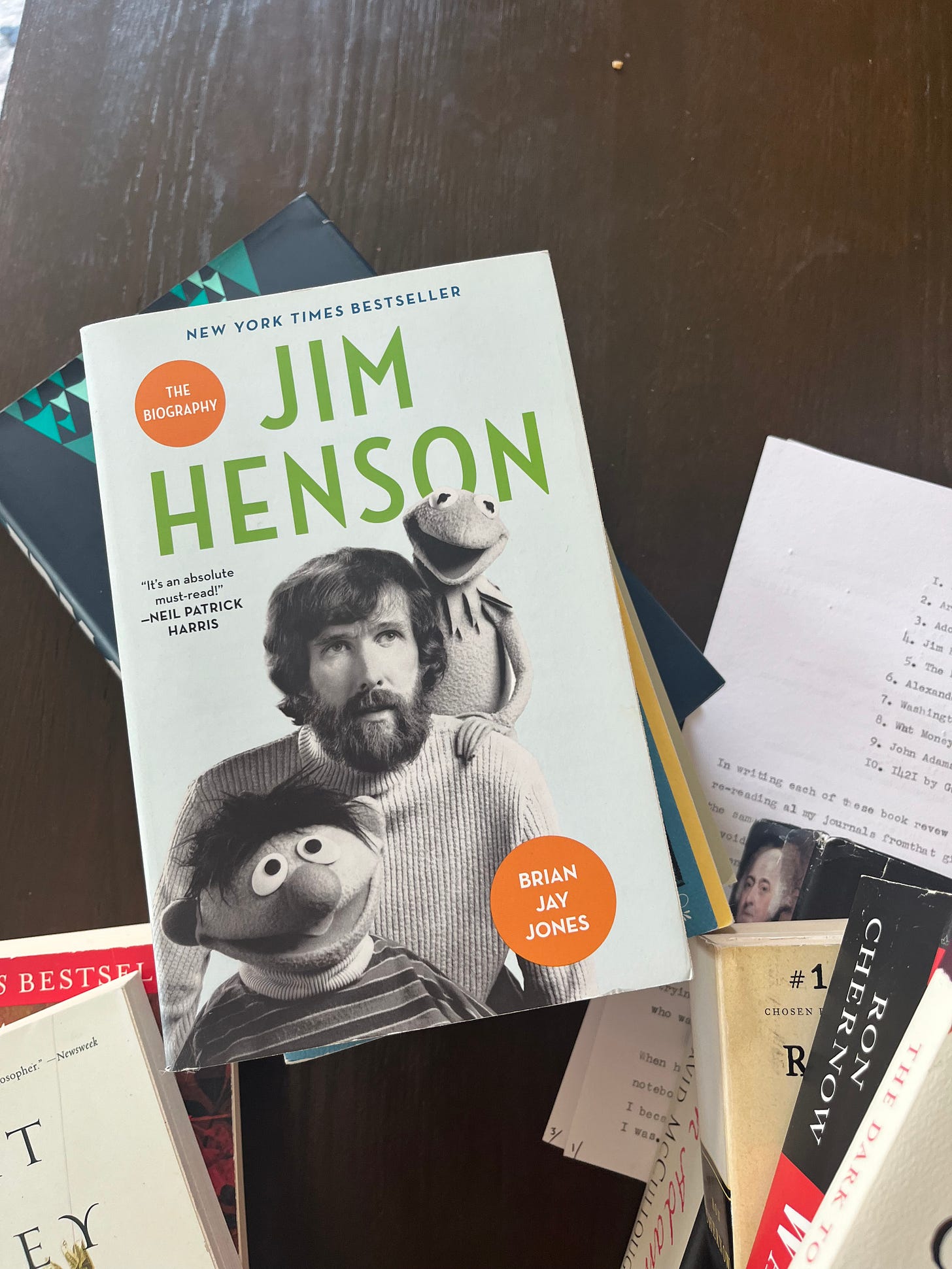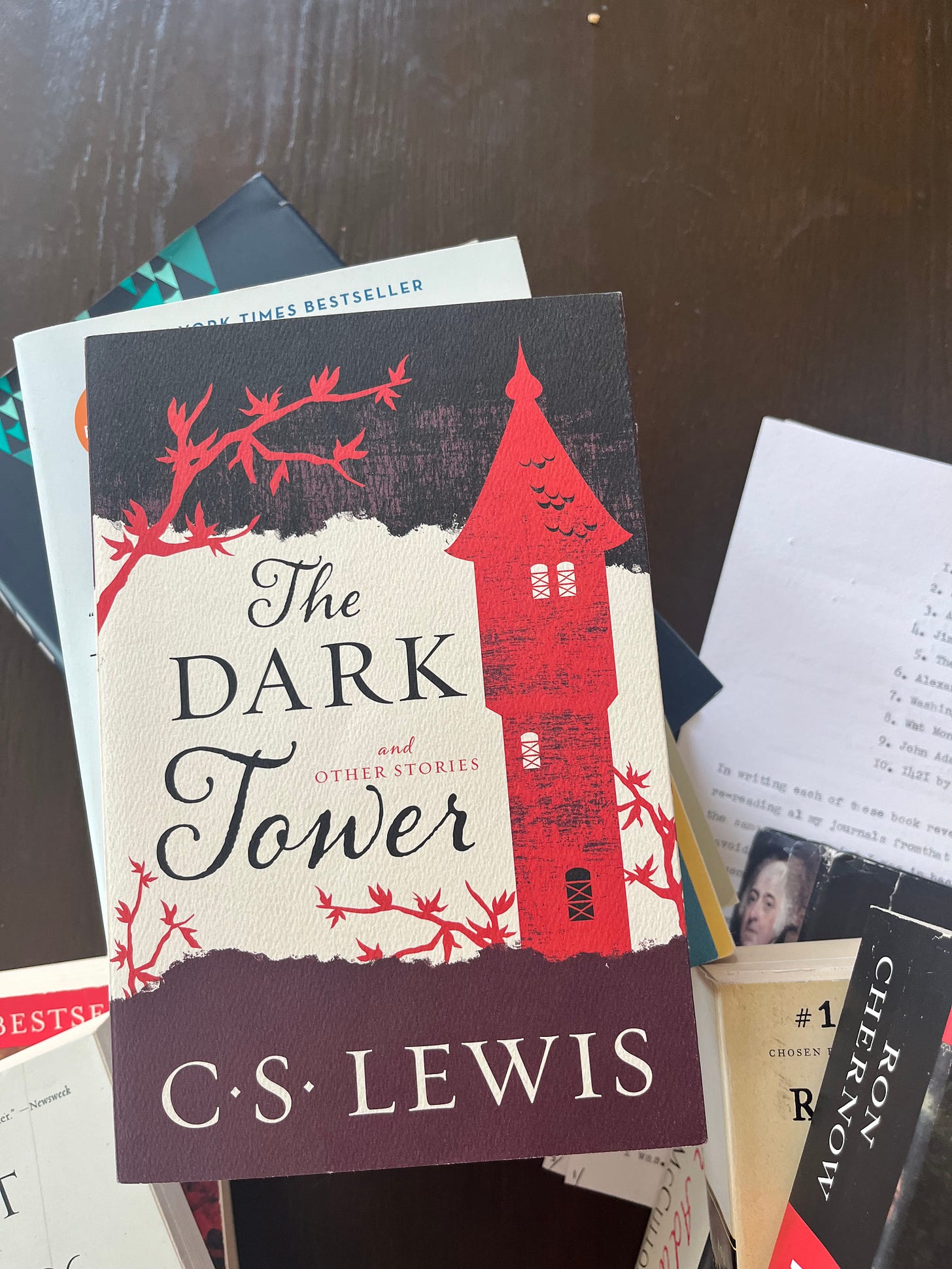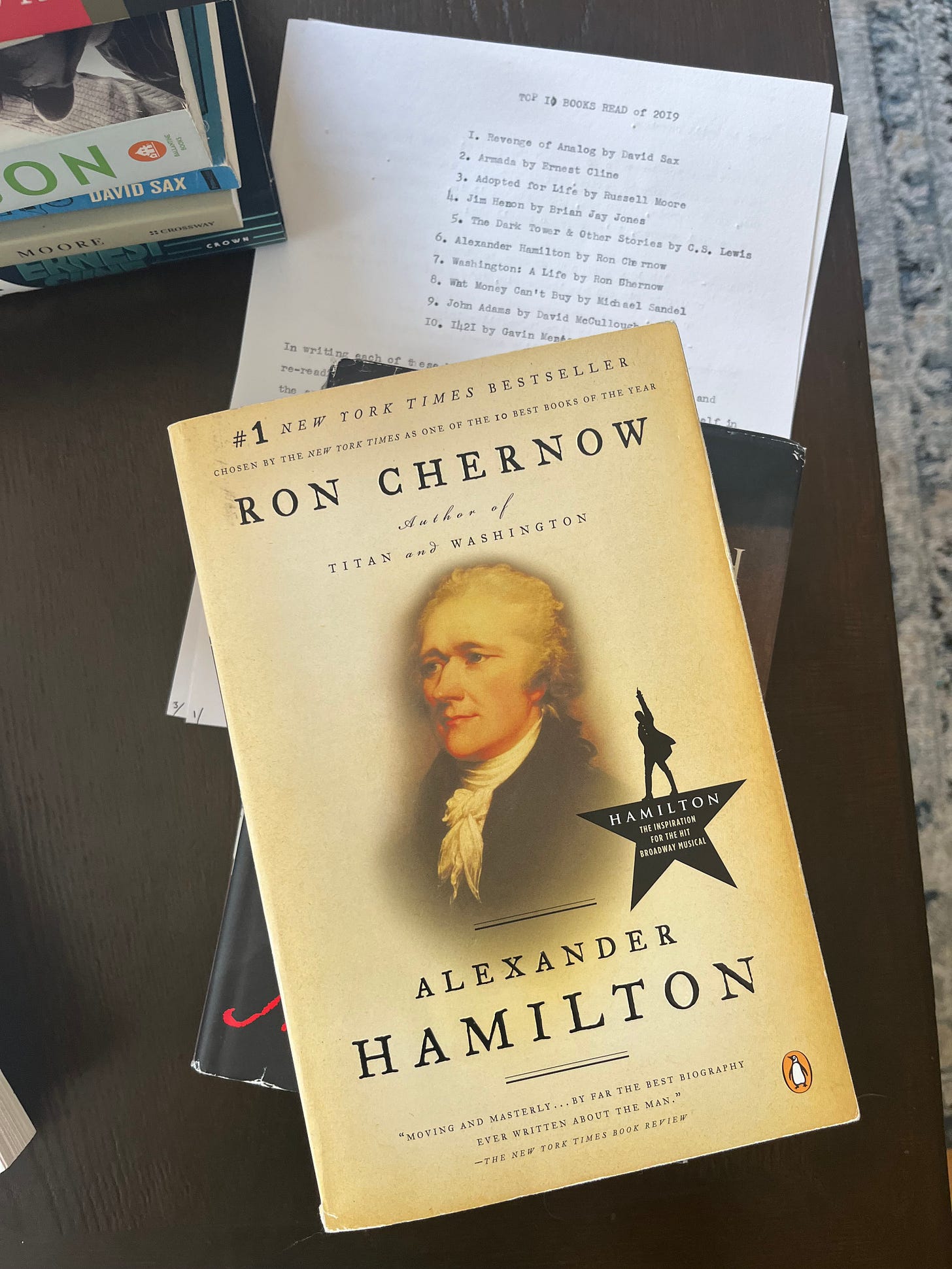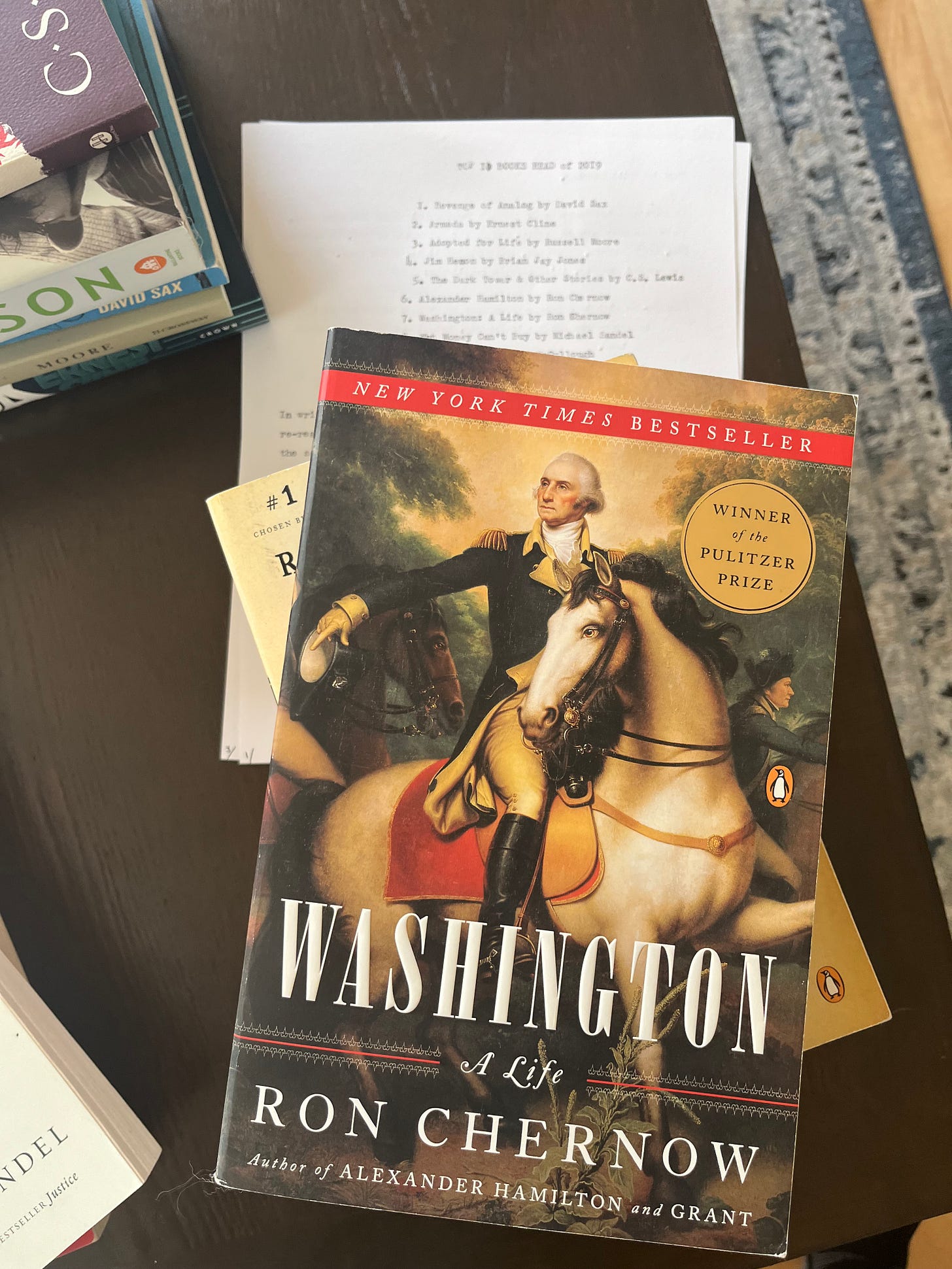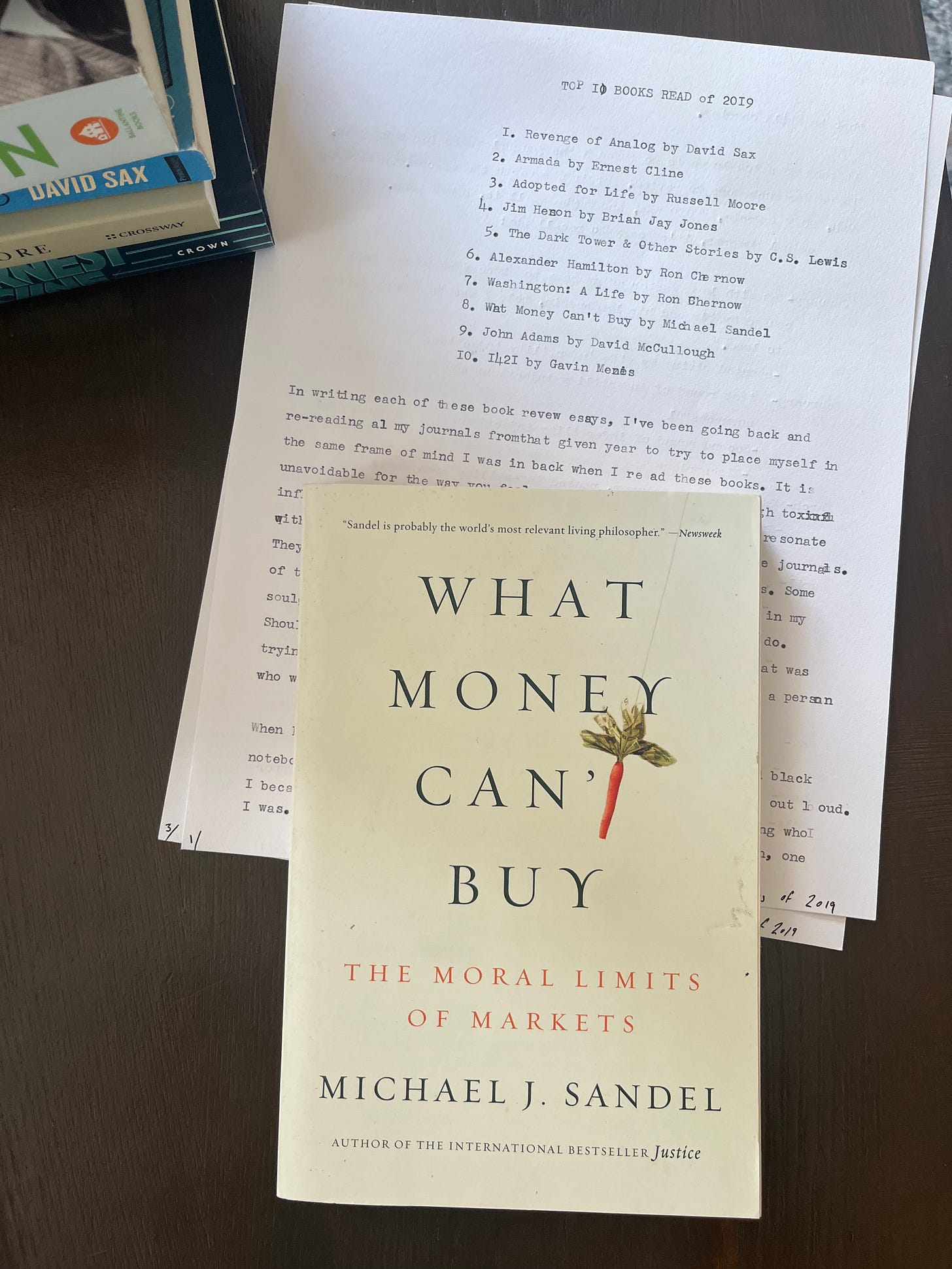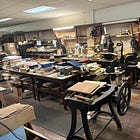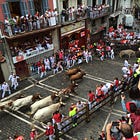1. The Revenge of Analog by David Sax
2. Armada by Ernest Cline
3. Adopted for Life by Russell Moore
4. Jim Henson by Brian Jay Jones
5. The Dark Tower and Other Stories by C.S. Lewis
6. Alexander Hamilton by Ron Chernow
7. Washington: A Life by Ron Chernow
8. What Money Can’t Buy by Michael Sandel
9. John Adams by David McCullough
10. 1421 by Gavin Menzies
To write each book review essay, I've re-read my journals from that given year to try to place myself in the same frame of mind I was in back when I read those books. It is unavoidable for the way you feel and what you are going through to influence what you read—and perhaps more so—what you resonate with. Up until this point, my journals haven't looked much like journals. They were catalogs of thoughts, quotes, sermon notes, and lists. Some of those pages reflected what was going on in my mind and in my soul, but they mostly notated things I thought I should do. Should remember. Should be. It was the journal of a person trying to become a different kind of person, not the journal of a person who was. This year was different. When historians one day (don't) go through my library of unruled black notebooks, they'll notice a turning point in 2019. I said things out loud. I became less concerned with what I should be and began examining who I was.
Key word: began.
But a work started with a new approach, one that is still ongoing. It took me a lot longer to go through the journal pages for this year, there was much more to review.
But it was worth the effort.
December 9th, 2019
2019 was, and maybe still is, a bad year.
In listing seminal moments, it's easy to remember why:
January
Met with lead pastor to discuss anger and hurt caused by him and his leadership, told I was “a thorny person to lead.”
Started giving my wife infertility injections
February
First round of infertility injections and IUI procedure unsuccessful
Second round of infertility injections and IUI successful
Miscarriage
March
Vacation to Vancouver, paused infertility treatments
Grandma died, deliberately chose not to go to funeral as an internal protest of how little she cared for me and my siblings
April
Met again with lead pastor, ended in bitter frustration
Started third round of infertility injections with drugs bought from Europe at a fraction of the cost of U.S. drugs
My closest Uncle died of a heart attack, funeral held a week later at the exact same funeral home as my Grandma, drove to South Dakota to attend
May
Third round of infertility treatments unsuccessful
Started adoption process
June
Began filling out adoption paperwork, chose agency
July
I was removed from another ministry, lead pastor told me “sorry it happened again”
Went to Hawaii for work
August
First home visit with adoption social worker
Went to Guam for work
September
Met with two additional pastors to discuss treatment by church and lead pastor
Began first adoption fundraiser
Met with lead pastor for final time, told I would no longer be considered to be involved in certain ministries for at least several years, at the same time new church attendees asked to fill roles that my wife and I previously held
October
Had a co-worker protest my involvement on a project in Guam because he lived closer to it (South Korea), executive leadership was called in to resolve the dispute
October 21, 2019: Original due date for pregnancy that ended in miscarriage
November
Coworker from Minnesota drove to my hometown to tell me he would be taking over my sales territory (unannounced no prior communication from any management), kicked off a conflict between management that went unresolved for several years
December
Left church
Yeah, that was fucking brutal. But the crazy thing is, this was a really great list of books. Amid that shitbag of a year, I found a friends in the written word that I loved reading for no reason other than I loved reading them. There weren't any books that I felt obligated to like, and I remember finding solace in certain pages during the events listed above. They were my guides, companions, support system. I never really read books that way before.
•••
1. The Revenge of Analog: Real Things and Why They Matter by David Sax
The villain in my story also recommended this book. Not to me directly, but in a podcast. That's how he spoke to me when I wasn't being scolded in my living room for not being a subordinate enough Christian. He's really good in podcasts.
As the digital age separates physical beings further and further from a physical reality, our metaphysical souls long for something tactile. Tangible. Real. There's something beyond efficiency and convenience that doing things the old ways creates, something that fills a gap in our being we didn't realize was empty until we stopped filling it. David Sax considered the reincarnated popularity of several of these old ways of doing things. He investigated vinyl records, board games, and film, and wondered out loud why the digital age didn't kill those means like it promised to.
When I bought a typewriter, I wrote a stream of consciousness essay about my purchase. And emailed it to David Sax. And he emailed me back. And then Sax bought his own typewriter. And then started his own Substack about writing on a typewriter. I won't take all the credit, just most of it.
This remains on the shortlist of books that changed the way I see the world, from yesterday to today. As time goes on, the lessons only feel more real.
Some items, ideas, messages are timeless.
•••
2. Armada by Ernest Cline
During a tough season, we got a reprieve. A wonderfully glorious reprieve. There was a bunch of construction set to go down on the island of Guam, and my company needed a sales guy. Since Guam is basically equally in the middle of nowhere from everywhere, they picked a guy in Omaha. I needed to talk to a potential customer. Who lived in Hawaii. So that's how my wife and I got an all-expense paid trip to paradise for just the price of her plane ticket.
In the airport, I saw a paperback copy of Armada on one of the Hudson News book racks. I had no idea Ernest Cline wrote another book after Ready Player One but decided against buying it. I already had The Revenge of Analog in tow, but unfortunately that book was too fucking good to last me the entire trip. In a desperate attempt to buy Armada, I scoured every subsequent bookstore we saw as soon as we landed on Oahu. I was coming up empty.
On the last leg of our trip, we found a used bookstore on the Big Island. With our rental of snorkeling gear, Snorkel Bob gave us a copy of his book about snorkeling. We weren't particularly interested in what Snorkel Bob had to say about snorkeling, so we decided to sell that copy and save space in our luggage for more seashells. While the Kona bookstore decided how much Snorkel Bob's life work was worth, I tracked down a perfect hard cover copy of Armada. And inside its pages was a fabric bookmark I have used in every book I've read since.
If you liked Ready Player One, just stop everything and get reading.
•••
3. Adopted for Life: The Priority of Adoption for Christian Families & Churches by Russell Moore
We told the small group we were leading at church about our plans for adopting, and one of our friends gifted us this book. Her parents had read it before deciding to adopt two children of their own. I was overwhelmed by it. It made such a clear case for adoption that this path not only felt right, but obvious. Inevitable. God’s will for our lives.
Last night, six years after reading this book, the mom of that friend called my wife to discuss challenges raising our adopted children. It had turned out differently than both of them thought it would.
•••
4. Jim Henson by Brian Jay Jones
I really enjoy biographies of people that got super famous for some random thing. Puppets are a pretty random thing to be famous for. Jim Henson's life had its up and downs, but mostly it was fun. Like this book. While my wife was in the back room of a fertility clinic at 7 AM for an intrauterine insemination while our future as parents and the efficacy of the tens of thousands of dollars we had spent on fertility drugs hung in the balance. I read about how Jim came up with the voice for Kermit the frog.
Like he has been for so many, Kermit was a friend when I was in desperate need of one.
•••
5. The Dark Tower and Other Stories by C.S. Lewis
As evidence by my entire brand concept, I like C.S. Lewis. I like him quite a bit. I can't get enough of his writing, well most of it. I’ve had my fill of his boring nerd stuff. Even though he was a boring nerd at times, Lewis comes alive when he tells stories. And, not surprisingly for a genius with so much going on in his mind, he didn't have time to finish all those stories. This book is a collection of all the stuff he played with but never got quite right, and instead of going to press, it was shoved in a box of papers that his literary curator dug out of the rubbish heap after Lewis went further up and further in.
Some of the best stories are left unfinished.
•••
6. Alexander Hamilton by Ron Chernow
Anyone want to guess which musical came to Omaha in 2019?
•••
7. Washington: A Life by Ron Chernow
Lin-Manuel Miranda didn’t like this one as much.
•••
8. What Money Can’t Buy: The Moral Limits of Markets by Michel Sandel
I took an MBA ethics course and most of the curriculum was reading books and watching movies. And I loved it. I was exposed to so many different viewpoints and challenges, and then did what I do best— write rambling, incoherent essays about the topic to try to sort through it all. This book was my favorite. It gave an overview of the limitations of economic and market principles when applied to non-economic ideals. Ideals such as, isn't it kind of shitty that all our favorite professional sports teams intended to unite a city play in stadiums named after male grooming products? It was an amazing corollary to The Revenge of Analog. This one also goes on the shortlist of books that changed my mind about things. It’s a masterwork.
•••
9. John Adams by David McCullough
John Adams was a grumpy old fuck.
•••
10. 1421: The Year China Discovered America by Gavin Menzies
We look back on history with ourselves at the center. It's inevitable. As much as we would love to avoid bias and narcissism, human consciousness can never fully allow it. How can you not be the center of the story when you are the center of your story?
So, when white-people write history, they write it the way white-people would. With white-people heroes. But the narrative changes when someone who doesn't have a voice is allowed to speak.
All that to say, Christopher Columbus was full of shit. The Chinese discovered America. They just didn't feel like bragging about it.




